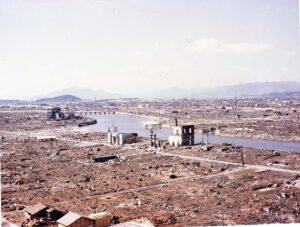Embodying the mind
By Khaled Diab
In philosophy and religion, the body is merely a hollow shell for our mind and soul. But what if our bodies not only confine but also define us?
9 April 2010
For centuries, our poor, fragile, vulnerable bodies have received something of a bad press. Occupying the temporal, physical plane, as they do, they are what make us weak and fallible; they succumb to temptation and are immersed in ‘sin'.
Though, at one level, they may be our temples, they are also regarded as our flesh pots. The devout try to release themselves of the body's mortal bonds through physically demanding – even harmful – devotions, such as fasting and self-flagellation.
In contrast, our souls and minds, are objects of disembodied, otherworldly beauty – they are pure, essential manifestations of who we are, uncontaminated by the whims and wiles of our carnal body, occupying the paradise of the metaphysical plane. Most religions regard the body as the prison of the soul, while the dualist view of philosophy sees the mind as somehow existing apart from and independently of the body.
Thought experiments seemed to back this up. René Descartes embarked upon a quest in which he called all his previous beliefs into doubt. Though he could doubt whether he had a body, the only thing he could be certain of was that he had a mind, because of his ability to think.
But tempting as it is to subscribe to Descartes famous adage, “I think, therefore, I am”, and all it says about the apparent power and independence of our higher faculties, evidence is mounting that out bodies are far more than mere vessels for our minds but actually intimately shape our every thought, including abstract ones.
A recent feature in New Scientist explored how science is gradually uncovering the mystery of how our bodies do the thinking. For example, one study showed that eye movement and abstract thought are linked.
Another experiment suggests that the physical and emotional are closely intertwined. It would appear that our tendency to describe good things as facing upwards – ‘high', ‘elated' and ‘upright' – and bad things as pointing downward – ‘down in the dumps', ‘downside' or even ‘lowlife' – is no simple metaphor and physical movement does affect the way we look at things. For instance, in one experiment, the direction in which people were moving marbles – up or down – often affected the way they answered neutral questions, such as “tell me what happened yesterday”.
More sinisterly, in a manner of speaking, our physical attributes, such as our handedness, seem to hold a certain amount of sway on our judgement. One experiment which asked 286 students to judge the personal characteristics of cartoon characters standing to the left and to the right found that 210 of them showed a clear rightward or leftward preference. Amazingly, of these, 65% of the left-handed students described the characters on the left more positively, while 54% of the right-handed students regarded the characters on the right more positively.
Since most of us are right-handed, this might explain why we say someone who is good is ‘righteous', why we don't speak of ‘human lefts' and why someone who used their left hand was considered ‘sinister' (meaning ‘left' in Latin) in the Middle Ages and ran the risk of being accused of witchcraft. Of course, we have overcome this prejudice in our enlightened age and many of us happily describe ourselves as leftists, though many rightists do still view us as the devil's spawn!
So, given the growing evidence that our ‘minds' are simply another, if more sophisticated, of our bodily functions, why have we regarded our intellects as being separate from our brains and bodies for so long. This could partly be caused by the confusion aroused by the fact that our thoughts can apparently defy the laws of physics and be in many places at once, and our minds can travel in time and space without our bodies, and switch between reality and fantasy in the blink of an eye.
In addition, this dichotomy is borne of our ancient frustration at the physical and time limitations our bodies impose upon us – the tragedy of our brains is that the consciences they grant us have led us to grow too big for our biodegradable physical boots, prompting the wish to outsmart them, through the invention of the mind, and outlive them, through the creation of the soul.
So, what implications does this emerging line of research have, beyond delivering humanity with another dent to its collective ego? Well, for starters, we'd have to rephrase Descartes famous adage. I suggest: “I stink, therefore, I think.”
Moreover, just as modern science has marked not only the death of God but also the death of the human soul, it now looks like the death knell has sounded for the metaphysical “mind”, too.
In a future of ‘ambient intelligence', we'll need to dedicate some effort to studying whether creating artificial intelligence that is similar to our own, will require us to create robots with bodies like ours or whether computer models simulating intelligence are enough? In addition, if intelligent life elsewhere in the Universe developed in radically different physical bodies would that mean they have developed radically different forms of abstract thought or is there a common element to abstract thought, regardless of the creature developing it?
How about future humanity itself? What if we radically re-engineer our bodies using genetic engineering techniques and nano-technology, would our cognition and perceptions vary dramatically, too? What kind of people will we become if we, one day, get rid of our bodies all together and upload our minds into ‘the cloud' once our bodies expire? Maybe this is the heaven we've obsessed over for so long about.


